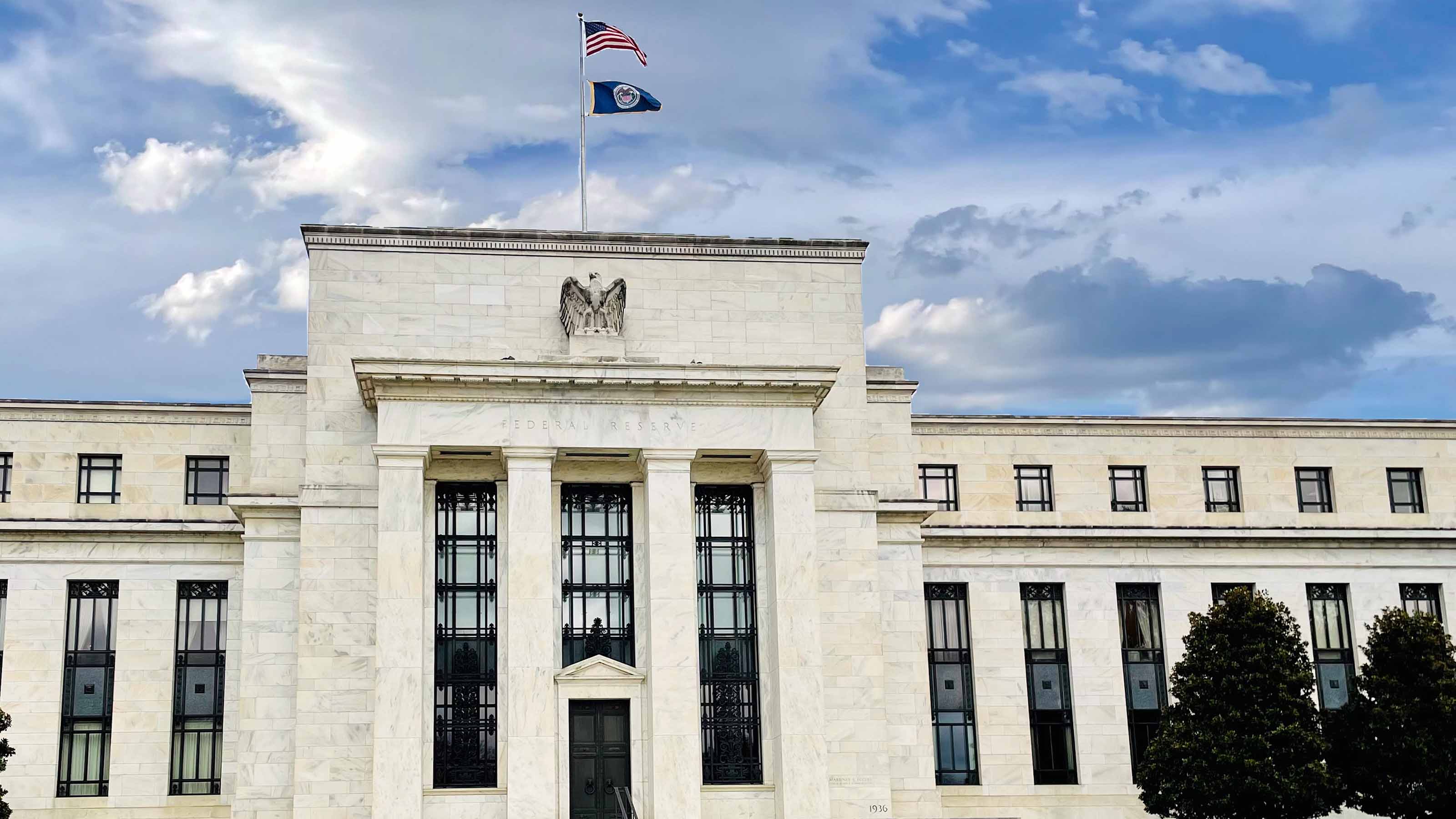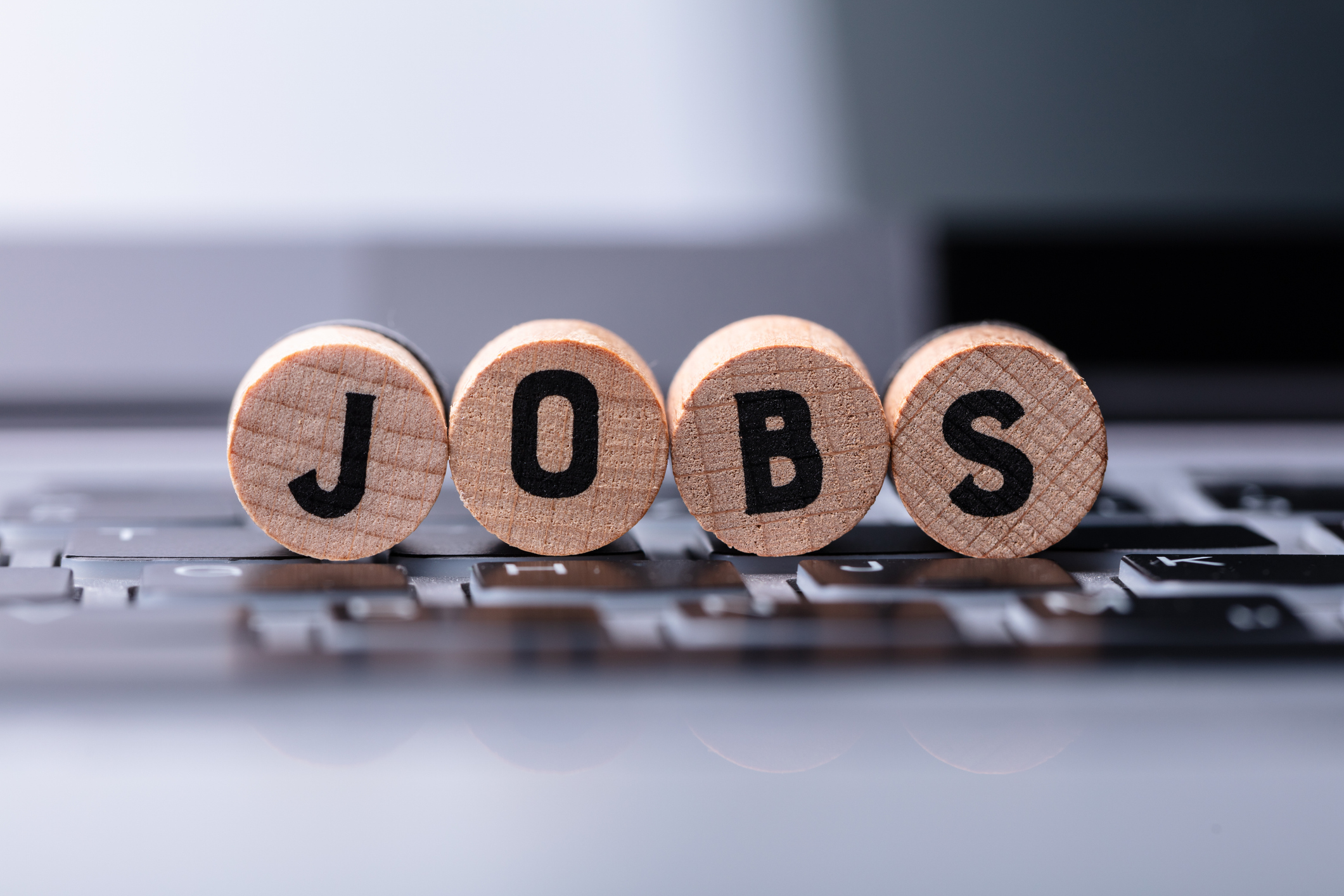What Happens to Stocks if the Fed is Wrong About Inflation?
Inflation may be cooling, but it still has a long way to go to meet the Fed's target. This could keep pressure on stocks as the central bank continues to fight higher prices.


Profit and prosper with the best of Kiplinger's advice on investing, taxes, retirement, personal finance and much more. Delivered daily. Enter your email in the box and click Sign Me Up.
You are now subscribed
Your newsletter sign-up was successful
Want to add more newsletters?

Delivered daily
Kiplinger Today
Profit and prosper with the best of Kiplinger's advice on investing, taxes, retirement, personal finance and much more delivered daily. Smart money moves start here.

Sent five days a week
Kiplinger A Step Ahead
Get practical help to make better financial decisions in your everyday life, from spending to savings on top deals.

Delivered daily
Kiplinger Closing Bell
Get today's biggest financial and investing headlines delivered to your inbox every day the U.S. stock market is open.

Sent twice a week
Kiplinger Adviser Intel
Financial pros across the country share best practices and fresh tactics to preserve and grow your wealth.

Delivered weekly
Kiplinger Tax Tips
Trim your federal and state tax bills with practical tax-planning and tax-cutting strategies.

Sent twice a week
Kiplinger Retirement Tips
Your twice-a-week guide to planning and enjoying a financially secure and richly rewarding retirement

Sent bimonthly.
Kiplinger Adviser Angle
Insights for advisers, wealth managers and other financial professionals.

Sent twice a week
Kiplinger Investing Weekly
Your twice-a-week roundup of promising stocks, funds, companies and industries you should consider, ones you should avoid, and why.

Sent weekly for six weeks
Kiplinger Invest for Retirement
Your step-by-step six-part series on how to invest for retirement, from devising a successful strategy to exactly which investments to choose.
Earlier this month, the Federal Reserve raised interest rates by 0.75% to a range of 3.75% to 4%. The Fed expects rates to top out between 4.5% and 4.75% in 2023. Others, such as Goldman Sachs, believe they could go as high as 5.0% next year.
The story of why the Fed is raising rates is known to most investors. They are intended to tamp down inflation and runaway prices for everything from gas to groceries. Average Americans are feeling the pinch, too. However, in the long run, the Fed and many economists argue that the pain will be much more severe if the central bank doesn't take steps to kill inflation.
The Fed's target for inflation is 2%. In October, the inflation rate was 7.7%, down from June's peak of 9.1%, but well above the central bank's goal.
From just $107.88 $24.99 for Kiplinger Personal Finance
Become a smarter, better informed investor. Subscribe from just $107.88 $24.99, plus get up to 4 Special Issues

Sign up for Kiplinger’s Free Newsletters
Profit and prosper with the best of expert advice on investing, taxes, retirement, personal finance and more - straight to your e-mail.
Profit and prosper with the best of expert advice - straight to your e-mail.
So interest rates continue to climb, albeit at a slower pace than recent months.
At this point, what happens to stocks if the Fed is wrong about inflation?
True Inflation Might Be Far Lower
Economist Paul Krugman believes the true inflation rate is possibly below 4%, half the September rate, due to cooling housing rental rates and slowing wage growth.
"A quick and dirty calculation: core CPI inflation was 6 percent annualized over the past 3 months; about half of this was shelter, which rose at 8 percent. But if market shelter inflation is 3 or less, as Goldman thinks, 'true' core is ~4 percent," Krugman tweeted on Nov. 5.
He goes on to say that slowing wage growth might lead to "substantial disinflation," but the standard measures used to calculate the headline inflation rate have yet to be captured.
Ultimately, Krugman argues that core inflation, which excludes volatile food and energy prices, could be as low as 3%, not the 6.3% rate seen in the October CPI report.
That's Good for Stocks, Right?
If Krugman is correct, the data will take a while to show up in the monthly inflation numbers. Maybe even years. In the meantime, investors worry that the ongoing fight against inflation will continue to put downward pressure on stock prices, which generally don't like periods of higher interest rates.
However, given what happened to inflation in the 1970s and 1980s, the Fed has no appetite for letting it off the hook and pivoting to lower interest rates.
As The Globe and Mail reported in October, inflation in Canada went from near zero in 1970 to above 12% in 1975. It then fell to 4.9% in November 1976, only to bubble up to 13.3% in April 1981, before falling to below 3% in October 1984.
While these are Canadian inflation numbers, the data is from the Federal Reserve Bank of St. Louis. The inflation rates in the U.S. over these 14 years were very similar.
The only way the Fed will stop raising rates is when it is 100% confident that inflation is dead and buried. In the meantime, stocks will likely continue to find new lows.
On Nov. 7, UBS economists said they see the S&P 500 falling another 16% over the next nine months, at which point the Fed takes its foot off the pedal of interest rate hikes.
"For the U.S., we now expect near zero growth in both 2023 and 2024, and a recession to start in 2023," wrote UBS chief economist Arend Kapteyn in a note to clients.
According to UBS, if you buy between April and June 2023, you could achieve double-digit returns by the end of 2023. But of course, market timing only sometimes works. It's time in the market that wins the day more often than not.
UBS sees the federal funds rate cut to 1.25% by early 2024. If so, investors will come charging back into the market.
In the meantime, investors better hope Paul Krugman's wrong about the true inflation rate because if he's not, there will be a lot more carnage in the markets from future rate hikes that turned out to be unnecessary.
Profit and prosper with the best of Kiplinger's advice on investing, taxes, retirement, personal finance and much more. Delivered daily. Enter your email in the box and click Sign Me Up.

Will has written professionally for investment and finance publications in both the U.S. and Canada since 2004. A native of Toronto, Canada, his sole objective is to help people become better and more informed investors. Fascinated by how companies make money, he's a keen student of business history. Married and now living in Halifax, Nova Scotia, he's also got an interest in equity and debt crowdfunding.
-
 How Much It Costs to Host a Super Bowl Party in 2026
How Much It Costs to Host a Super Bowl Party in 2026Hosting a Super Bowl party in 2026 could cost you. Here's a breakdown of food, drink and entertainment costs — plus ways to save.
-
 3 Reasons to Use a 5-Year CD As You Approach Retirement
3 Reasons to Use a 5-Year CD As You Approach RetirementA five-year CD can help you reach other milestones as you approach retirement.
-
 Your Adult Kids Are Doing Fine. Is It Time To Spend Some of Their Inheritance?
Your Adult Kids Are Doing Fine. Is It Time To Spend Some of Their Inheritance?If your kids are successful, do they need an inheritance? Ask yourself these four questions before passing down another dollar.
-
 The New Fed Chair Was Announced: What You Need to Know
The New Fed Chair Was Announced: What You Need to KnowPresident Donald Trump announced Kevin Warsh as his selection for the next chair of the Federal Reserve, who will replace Jerome Powell.
-
 January Fed Meeting: Updates and Commentary
January Fed Meeting: Updates and CommentaryThe January Fed meeting marked the first central bank gathering of 2026, with Fed Chair Powell & Co. voting to keep interest rates unchanged.
-
 The December CPI Report Is Out. Here's What It Means for the Fed's Next Move
The December CPI Report Is Out. Here's What It Means for the Fed's Next MoveThe December CPI report came in lighter than expected, but housing costs remain an overhang.
-
 How Worried Should Investors Be About a Jerome Powell Investigation?
How Worried Should Investors Be About a Jerome Powell Investigation?The Justice Department served subpoenas on the Fed about a project to remodel the central bank's historic buildings.
-
 The December Jobs Report Is Out. Here's What It Means for the Next Fed Meeting
The December Jobs Report Is Out. Here's What It Means for the Next Fed MeetingThe December jobs report signaled a sluggish labor market, but it's not weak enough for the Fed to cut rates later this month.
-
 The November CPI Report Is Out. Here's What It Means for Rising Prices
The November CPI Report Is Out. Here's What It Means for Rising PricesThe November CPI report came in lighter than expected, but the delayed data give an incomplete picture of inflation, say economists.
-
 The Delayed November Jobs Report Is Out. Here's What It Means for the Fed and Rate Cuts
The Delayed November Jobs Report Is Out. Here's What It Means for the Fed and Rate CutsThe November jobs report came in higher than expected, although it still shows plenty of signs of weakness in the labor market.
-
 December Fed Meeting: Updates and Commentary
December Fed Meeting: Updates and CommentaryThe December Fed meeting is one of the last key economic events of 2025, with Wall Street closely watching what Chair Powell & Co. will do about interest rates.